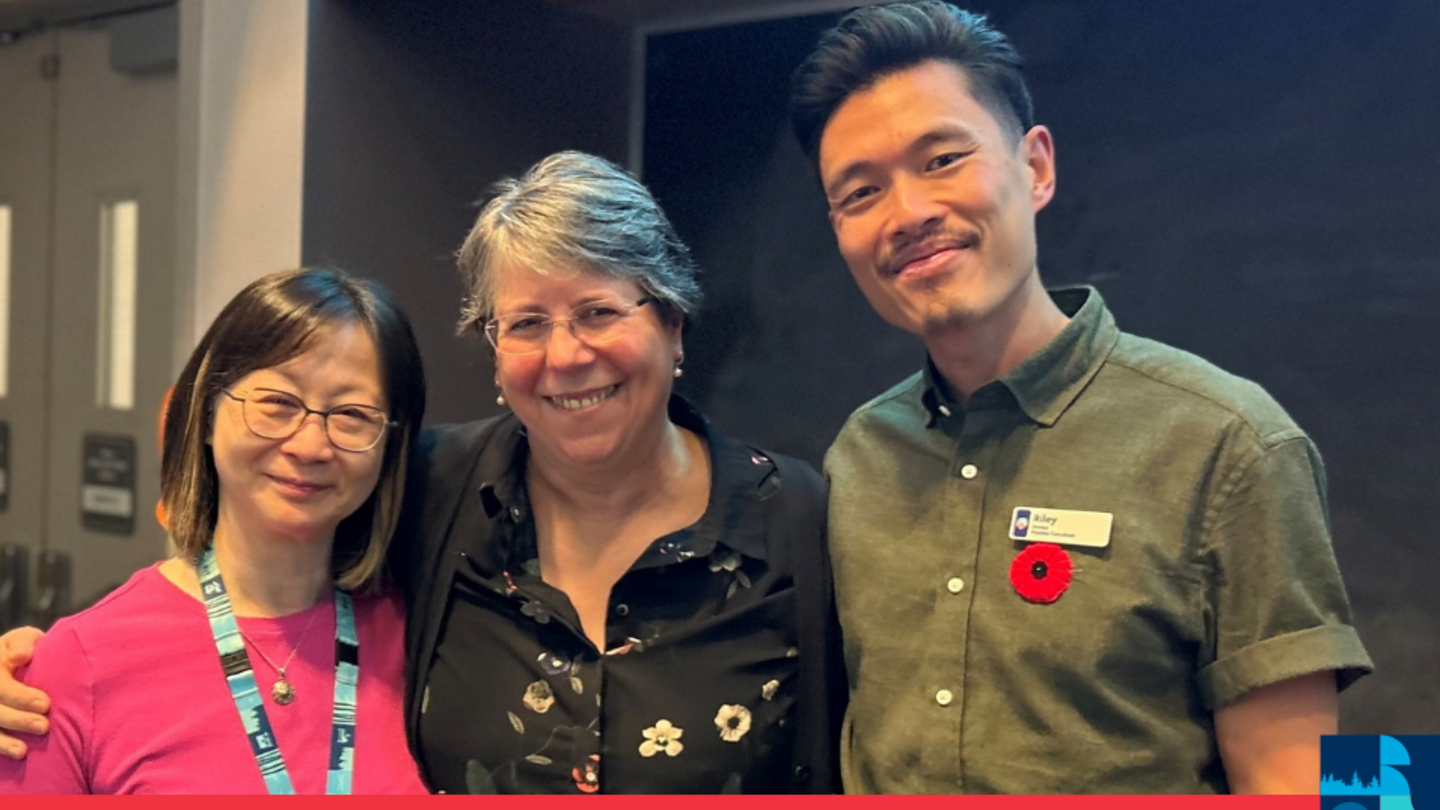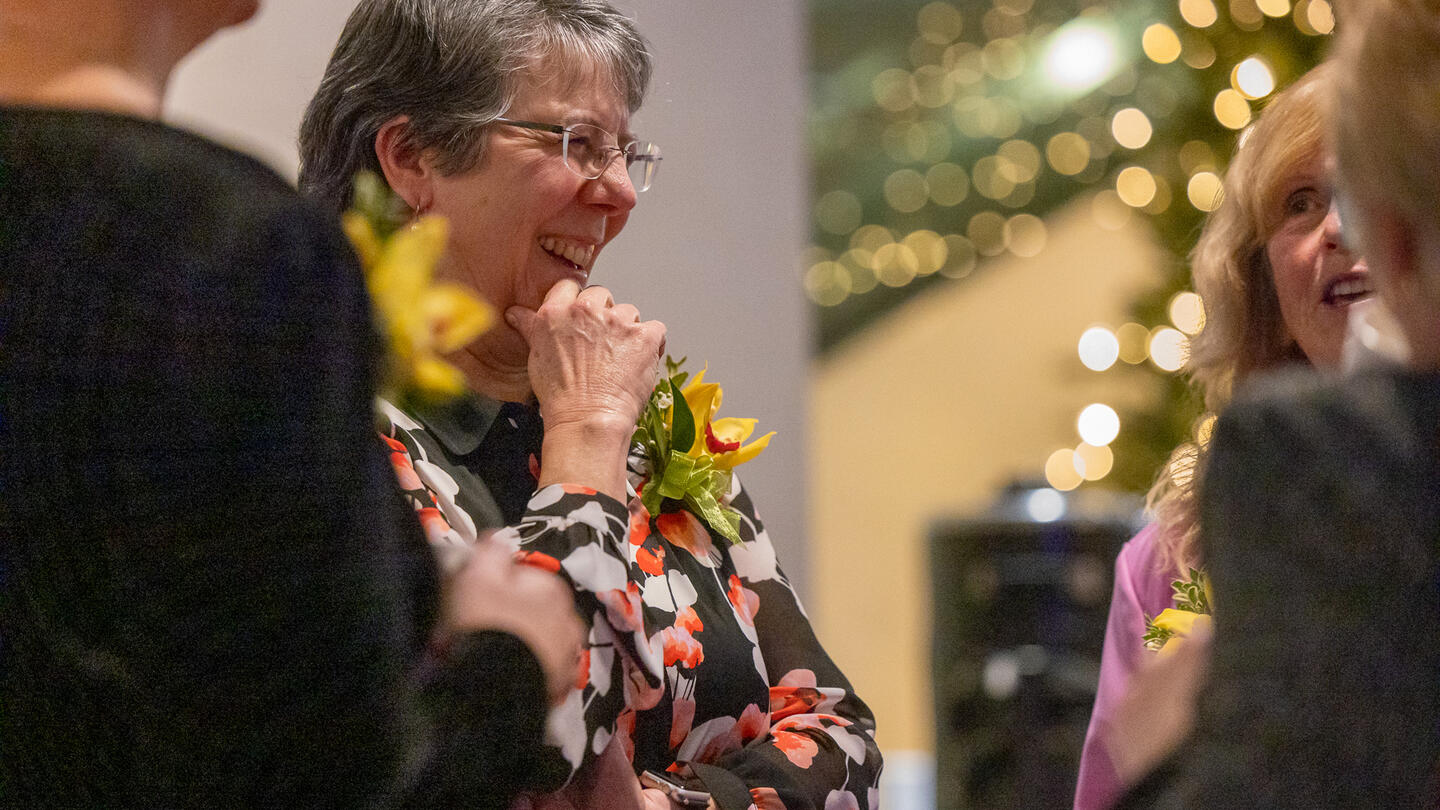Driving Innovation in Practice-Based Research
How Aggie Black’s Leadership Empowered Research, Practice, and Progress at Providence Health Care
Impact Innovation | Innovarium

At Providence Health Care, we’re committed to finding new ways of doing things and driving changes that will improve health care at PHC and beyond. We recognize that organizational supports are a critical component to help our staff bring their innovative ideas to life.
Aggie Black, Director, Health Services & Clinical Research & Knowledge Translation, is the perfect example of our commitment in action. She was able to leverage the organizational supports in place at PHC to advance innovation for point-of-care staff. During her 15 years at PHC, she has been the driving force behind the Practice-Based Research Challenge, the Knowledge Translation Challenge and the Planetary Health Awards. As Aggie prepares to retire at the end of December, we wanted to highlight how her vision and passion have contributed to innovation at PHC and beyond.
Introducing the Research Challenge to BC
Aggie Black
Aggie joined PHC on the first workday of 2010 as a nursing research facilitator. By 2011, she’d launched the Practice-Based Research Challenge, a first in BC. Since then, the program has expanded to Vancouver Coastal Health, BC Cancer, BC Children’s Hospital, BC Women’s Hospital + Health Centre, and BC Mental Health and Substance Use Services.
The annual Research Challenge provides mentorship, training and funding to point-of-care staff to embark on small-scale research projects. Aggie got the idea off the ground by approaching her then-boss and asking for some funding to pilot the concept. To date, more than 800 clinicians have participated in the program. It has generated 23 published papers and more than 150 conference presentations. In January, the challenge will open for its 15th cohort.
Nearly 75% of participants in the PHC Research Challenge said that the program contributed to practice-based changes. One example is a project at the Transcatheter Aortic Valve Implantation (TAVI) clinic that led to a reduction in bedrest time post-procedure from 8 to 4 hours; 4 hours is now standard practice at St. Paul’s Hospital Heart Centre.
“The Research Challenge gives staff the ability to connect something they have in their brain, investigate it, and come up with solution,” says Wilma Chang, research coordinator and long-time colleague of Aggie’s. “Aggie has served as a tremendous leader and mentor. She has encouraged many point-of-care staff to take on research projects and advance KT initiatives. Some have gone on to pursue master’s and PhD’s and secure external funding for other projects.”

Growing BC’s knowledge translation capacity
A natural follow-up to the Research Challenge was the KT Challenge. Developed in partnership with Vancouver Coastal Health, the KT Challenge supports teams of clinicians who may not have much KT expertise but are responsible for moving evidence into practice. The first KT Challenge project to ever be completed at PHC introduced a depression screening tool into routine practice on the acute cardiac unit at St. Paul’s Hospital. This was done because the scientific evidence suggested that depression is commonly unrecognized in the inpatient setting without a systematic screening process.
Since its launch, the KT Challenge program has been adopted at BC Cancer, Fraser Health and Northern Health. PHC’s KT Challenge has supported 42 teams and more than 300 participants.
“Programs like the Research Challenge and the KT Challenge are important because the best ideas for improvement come from those who spend the most time with patients,” says Aggie. “They can see what needs to change and they have the ability to bring those changes into practice.”
In addition to her contributions at PHC, Aggie has been involved in growing nursing and other practice-based research at a provincial level. She was a long-time board member of the Nurses and Nurse Practitioners of BC (NNBPC) and Canadian Association of Nurses for the Environment. She is also a key player in growing BC’s knowledge translation capacity.
“Aggie knows innovation doesn’t happen on its own,” said Gayle Scarrow, Director, Knowledge Translation at Michael Smith Health Research BC. “She has been a leader in BC helping people and organizations use research evidence to improve practice and policy. We recognize and celebrate her many collaborations with our organization as a member of research teams, as a peer reviewer, and as an expert speaker on knowledge translation.”
Aggie also brought her personal passion to combat climate change to PHC’s Environmental Stewardship Team, where she helped start the Planetary Health Awards. These awards help staff make changes that will reduce PHC’s environmental footprint. Even though the awards have only been in place for a year, they’ve funded four projects that are already making a difference.

Creating future opportunities for practice-based research
Not one to just lean on past accomplishments, Aggie has been working to create more opportunities for point-of-care staff to continue engaging in research.
“Aggie has been instrumental in creating the new Centre for Research Training for nursing and allied health (CREST). The program will provide training, infrastructure and funding to support and encourage staff as they advance their clinical and research careers,” says Riley Louie, Leader, Clinical Projects and Strategic Initiatives. “Even though she’s winding down her career at PHC, Aggie still has a vision for how we can grow innovation at the point-of-care.”
“I’m excited about CREST,” says Aggie. “With financial support from St. Paul’s Foundation, the Centre will demonstrate that if you give nurses and allied health extra training, you will see a boost in practice-based, applied research, and that will lead to benefits for patients and the health care system.”
“I’ve been incredibly privileged to work at Providence Health Care,” reflects Aggie. “We have leaders who not only encourage innovation but actively support it. And we have clinicians who are willing to step outside their clinical work to take on research, even though it takes a lot of time and involves a rigorous process.”
The Practice Based Research Challenge, the KT Challenge and the Planetary Health Awards are three programs that are promoted by the Innovarium, Providence Health Care’s innovation engine that connects people, systems, infrastructure, and partners to accelerate health innovation.